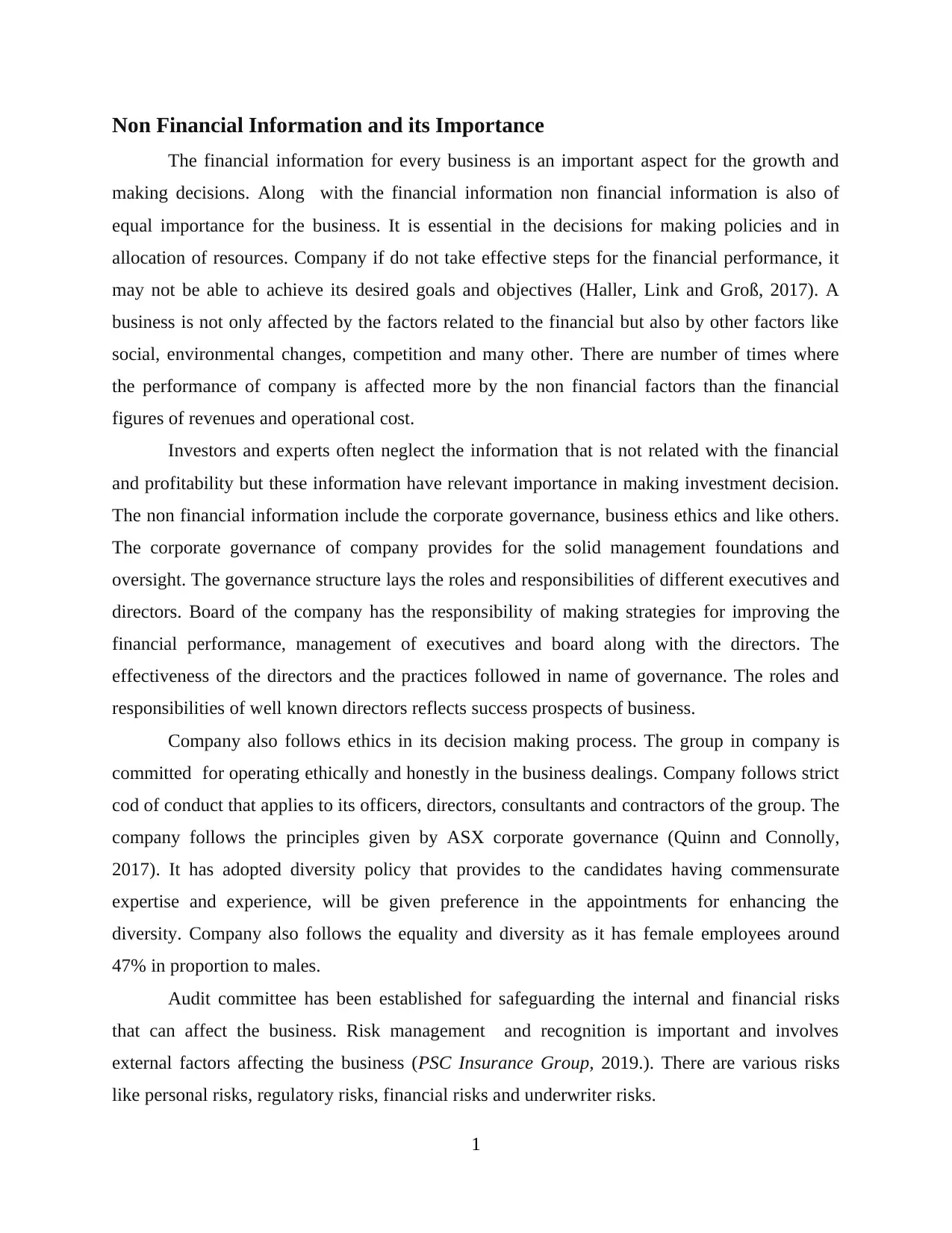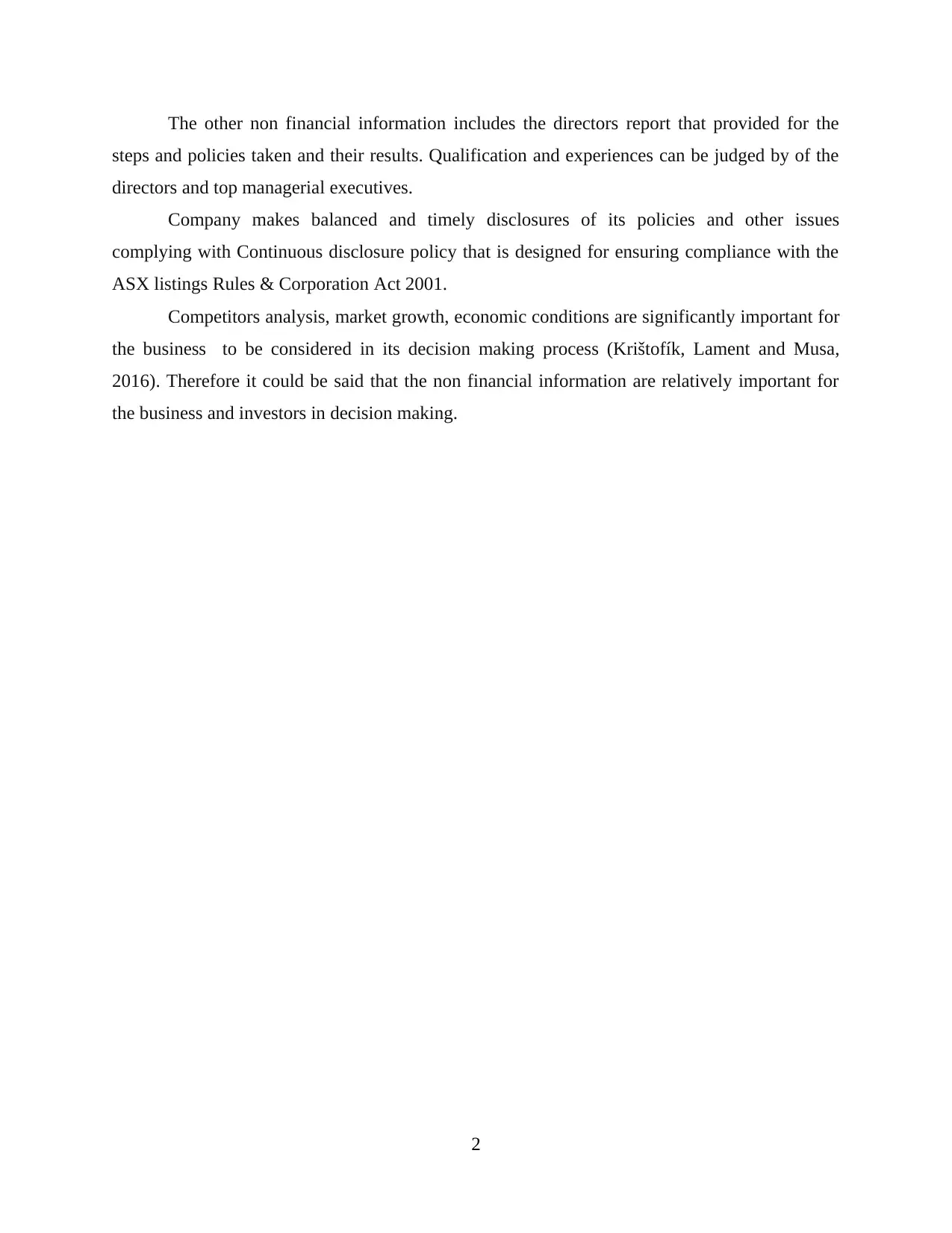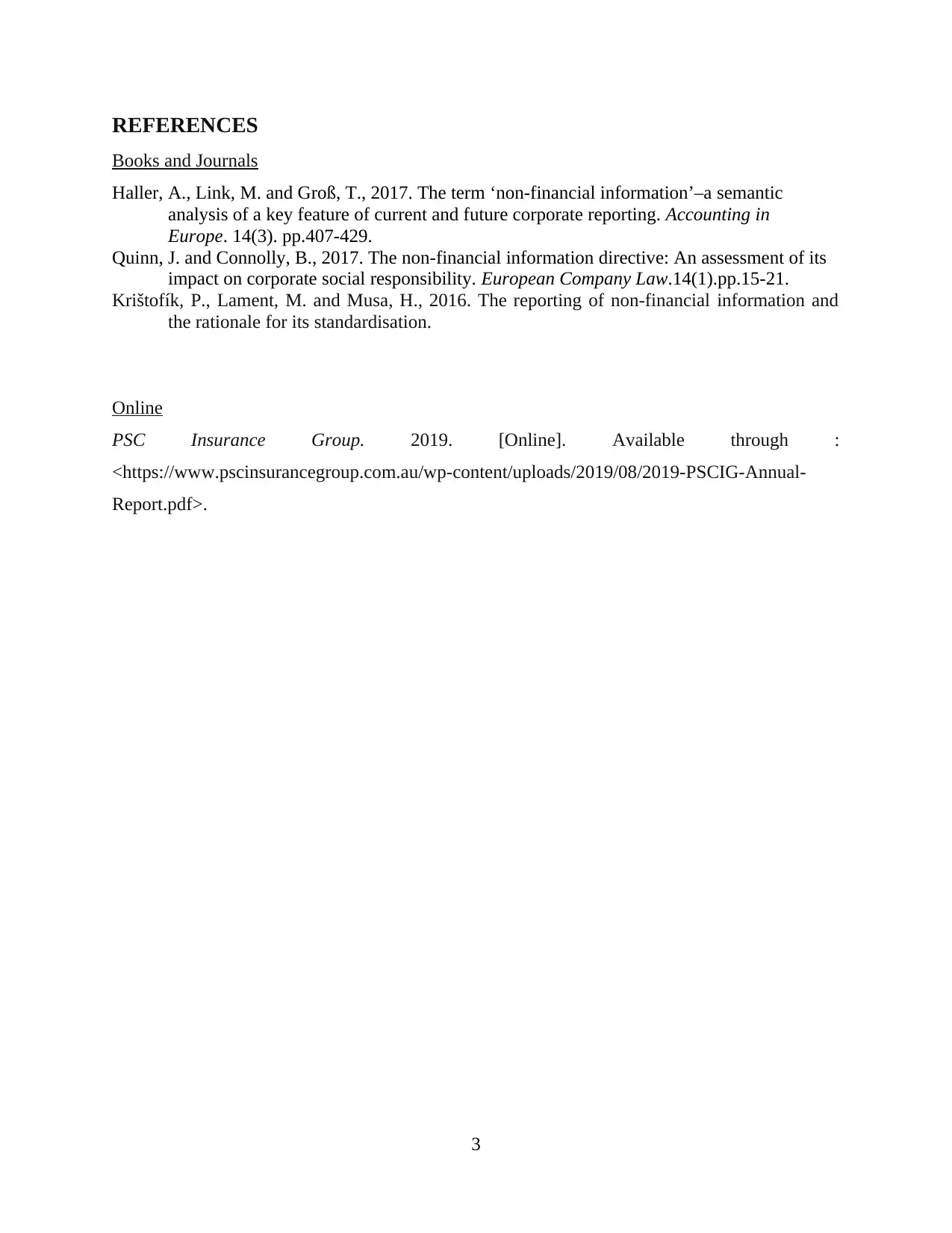ACC101: Non-Financial Information's Importance in Business Decisions
VerifiedAdded on 2023/01/13
|5
|709
|81
Report
AI Summary
This report examines the significance of non-financial information in introductory accounting. It emphasizes that while financial data is crucial for business growth and decision-making, non-financial information, including corporate governance, business ethics, and risk management, is equally vital. The report highlights how these factors influence investment decisions, resource allocation, and overall business performance. It discusses the importance of corporate governance structures, ethical conduct, and compliance with regulations like ASX corporate governance principles. Furthermore, the report explores the role of directors' reports, competitor analysis, and market conditions. The conclusion underscores the relative importance of non-financial information for both businesses and investors, offering a comprehensive overview of its impact on strategic decision-making.
1 out of 5












![[object Object]](/_next/static/media/star-bottom.7253800d.svg)